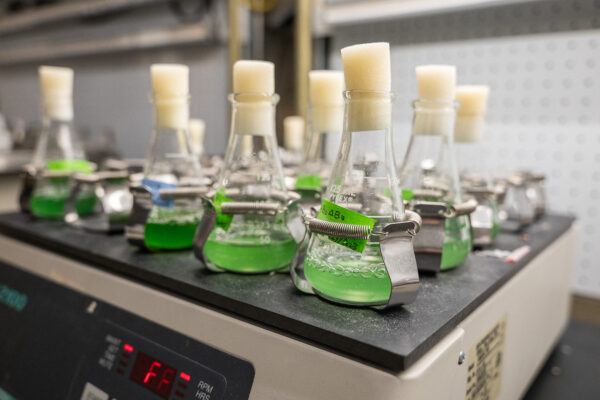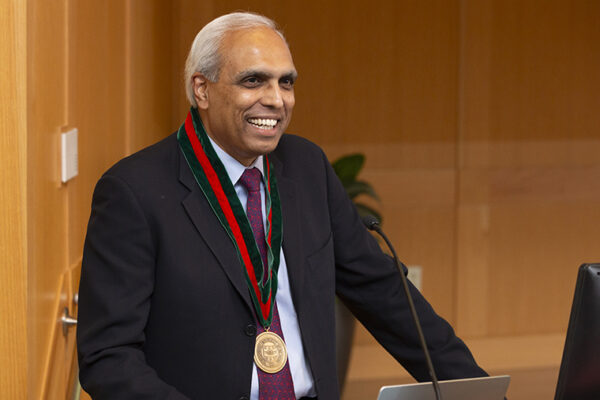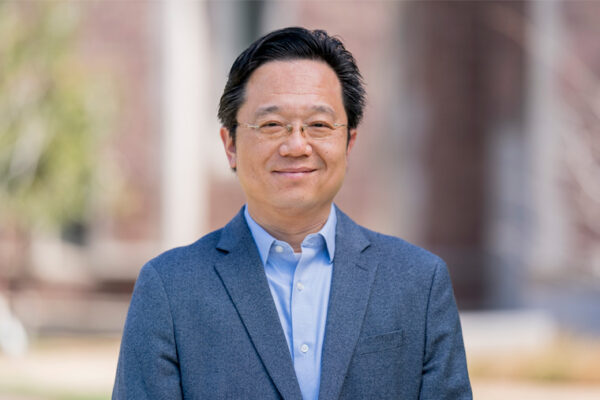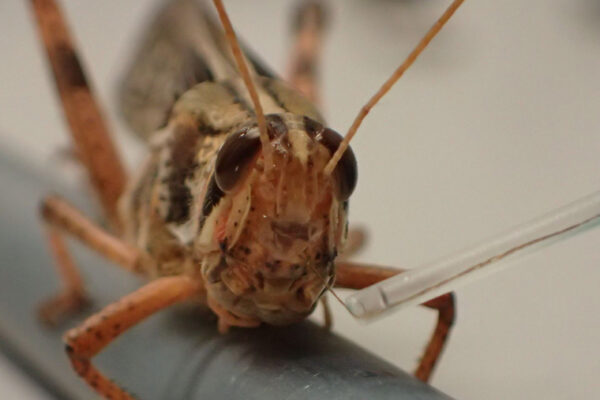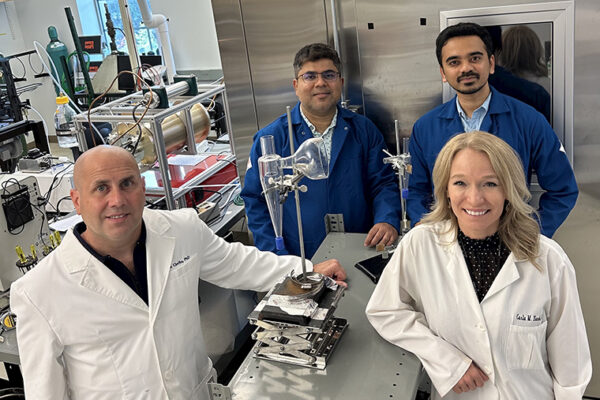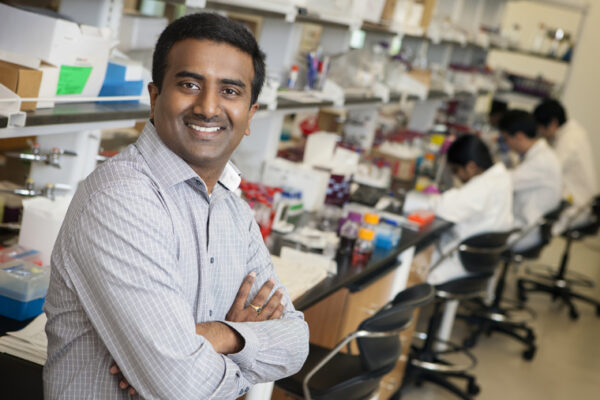Grant funds green fertilizer research at WashU
Biologist Himadri Pakrasi in Arts & Sciences, who studies how cyanobacteria contribute to the chemistry of life, will lead a $5 million effort to develop technology to convert atmospheric nitrogen into fertilizer. Yinjie Tang and Yixin Chen at the McKelvey School of Engineering are co-investigators on the project.
‘Object Lessons’ book series comes to WashU
“Object Lessons,” the long-running series of pocket-sized books that explores the secret lives of ordinary things, is now based in the Program in Public Scholarship in Arts & Sciences.
Pappu installed as Gene K. Beare Distinguished Professor of Biomedical Engineering
Rohit V. Pappu, an internationally renowned researcher in biomolecular condensates and intrinsically disordered proteins, was installed Oct. 9 as the Gene K. Beare Distinguished Professor of Biomedical Engineering at the McKelvey School of Engineering.
AI for Health Institute launches to promote growing intersection of artificial intelligence, health
Washington University has launched the AI for Health Institute to design data-driven tools to characterize complex diseases, support clinical decisions and drive precision health. The institute was introduced at the AI & Digital Health Summit, held Oct. 18-19 at the university.
Award for paper on predicting postoperative complications with wearables, AI
A paper published by an interdisciplinary team led by Chenyang Lu at the McKelvey School of Engineering received a Distinguished Paper Award from the Proceedings of the ACM on Interactive, Mobile, Wearable and Ubiquitous Technologies.
Engineers to build cyborg locusts, study odor-guided navigation
Researchers at the McKelvey School of Engineering have long sought to understand the power of locusts’ sensing, computing and locomotory capabilities.
Engineering a safer future against infectious disease
Quick detection of the COVID-19 virus — in the air and in one’s breath — offers hope in the nearly four-year struggle against the disease and its variants. A collaboration of WashU scientists is leading the way.
Braving the Medicare minefield
Alumnus Tej Seelamsetty applies his joint interests in business and technology to a massive health-care problem.
Singamaneni to develop advanced protein imaging method
With a $450,000 grant from the National Science Foundation, Srikanth Singamaneni at the McKelvey School of Engineering will develop a method that combines a bright fluorescent nanoparticle with expansion microscopy to image secreted proteins with high sensitivity, precision and accuracy.
Foundations award $5 million for food production initiative
Feng Jiao, a professor of energy, environmental and chemical engineering at the McKelvey School of Engineering, will lead work designed to address food insecurity in low- and middle-income countries.
View More Stories
